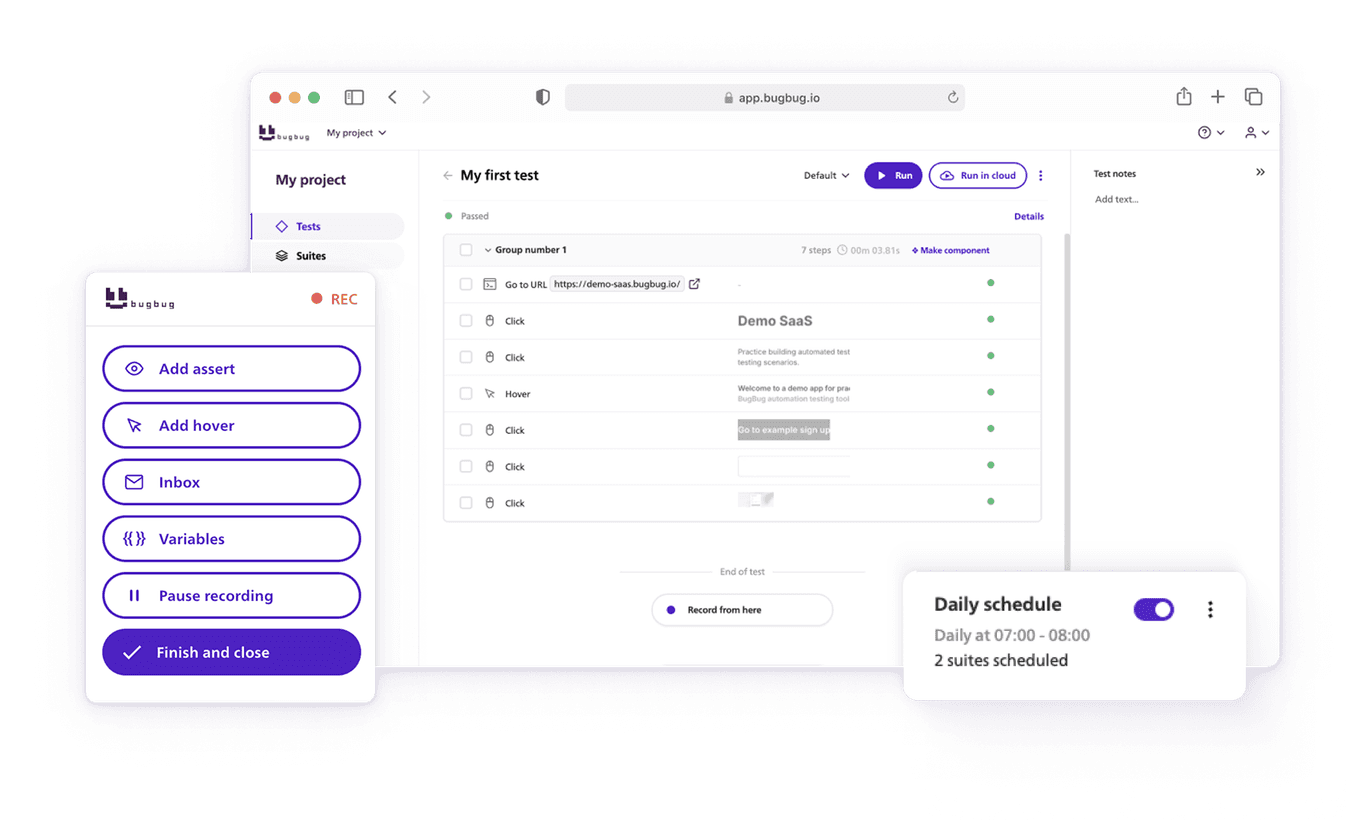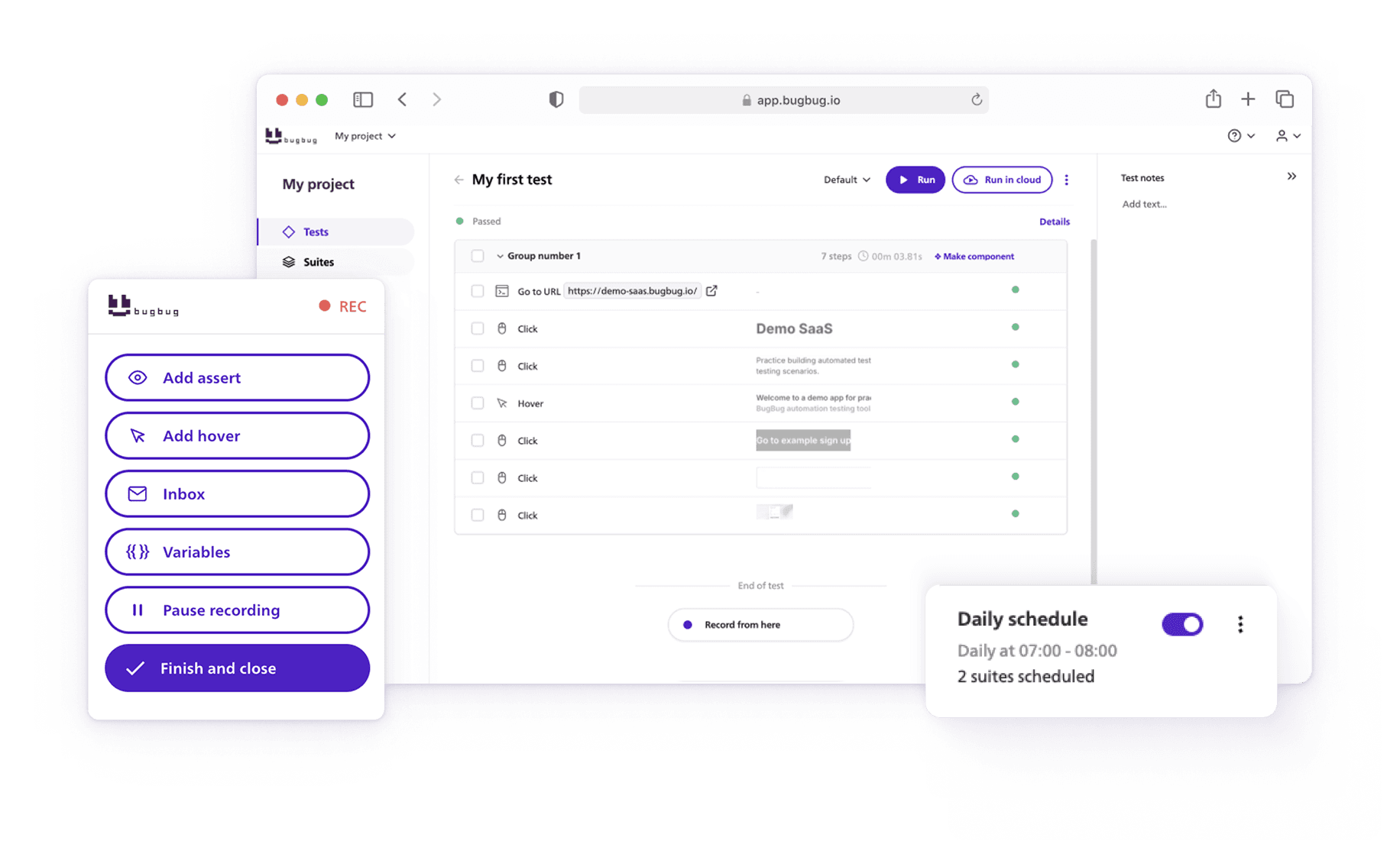Browser automation has become the foundation of modern QA, testing, and web scraping. Among the top contenders in this field are Playwright and Puppeteer — two powerful Node.js libraries designed to automate browsers with precision and speed.
While both tools share a common heritage, their capabilities and philosophies have diverged. Playwright extends beyond Chrome to support all major browsers and parallel testing, while Puppeteer focuses on simplicity and deep Chrome integration.
Whether you’re building robust end-to-end tests or scraping dynamic websites, understanding the differences between Playwright and Puppeteer can help you choose the right tool — and save your team valuable time and effort.
🎯 TL;DR - Playwright vs Puppeteer
| Feature | Playwright | Puppeteer |
|---|---|---|
| Browser Support | Chromium, Firefox, WebKit (first-class) | Chromium-centric (limited Firefox/Edge) |
| Language Support | JS/TS, Python, Java, C# | Primarily JavaScript |
| Mobile App Testing | ✅ Native mobile support | ❌ Web-only |
| Auto-Wait | Robust, smart waits | Present, but can be clunky |
| Network Interception | Advanced and flexible | Basic, needs more setup |
| Ease of Use | Powerful, but steeper learning curve | Easy setup, beginner-friendly |
| Community Support | Growing (Microsoft-backed) | Large, mature community |
| Scraping Capabilities | Cross-browser scraping, anti-bot resilient | Excellent for Chrome scraping |
| Performance | Great for complex tests | Fast for short, Chromium-based scripts |
| Integration | Jest, CI/CD, tracing tools | Mocha, Jest, Jasmine, DevTools |
Check also:
Chromium Based Browsers
When it comes to automating browser tasks, most developers start with Chromium-based browsers—and for good reason. Tools like Puppeteer make that easy. But what happens when you need to go beyond Chrome?
That’s where Playwright pulls ahead.
Unlike tools with limited browser support, Playwright offers first-class support for Firefox, WebKit, and Chromium—even going so far as to maintain its own browser patches for optimal performance. Whether you're testing on Safari, Chrome, or Microsoft Edge, Playwright ensures your cross browser testing covers all the major modern web browsers.
Need to test how your app behaves when different network requests fail? Playwright supports network interception out of the box, allowing you to simulate all kinds of real-world scenarios—no plugins required.
Even more impressive is its native mobile app testing capability, which lets teams go beyond just web and validate full end-to-end testing experiences across platforms.
And when it comes to programming language support, Playwright breaks free from the typical JavaScript library (or JS library) limitations. It offers multi language support, with official APIs for multiple languages including Python, Java, and C#. This makes it ideal for diverse teams who want to stick with their preferred tech stack.
Let’s not forget the auto wait functionality, another area where Playwright shines. Unlike tools that rely on manual waits or timeouts, Playwright intelligently waits for elements to appear and become interactable—making your tests more stable and less flaky.
In short, both Playwright and Puppeteer are powerful tools. But if your team needs robust Firefox support, real multi-language support, and features like network interception, native mobile app testing, and Microsoft Edge support, Playwright may be the better long-term bet—especially when other tools still struggle with limited support or browser-specific limitations.
And with offering extensive resources, rich documentation, and ongoing updates, Playwright is quickly becoming the go-to for serious browser automation.
Why Teams Choose Playwright in 2025
If your project demands testing across multiple browsers and various operating systems, Playwright is built for scale. It’s engineered with cross browser compatibility in mind, supporting Chromium, Firefox, and WebKit—delivering a consistent website experience on every platform. Oh, and it doesn’t stop at browsers—it also supports testing native mobile apps.
Here’s where Playwright shines:
- Playwright supports multiple browsers including Microsoft Edge, Firefox, and Safari.
- Offers advanced control over browser pages, navigation flows, and multiple tests running in parallel.
- Provides robust auto wait features, so you don’t have to manually wait for UI elements.
- Designed for complex scenarios with dynamic content and pages that require JavaScript rendering.
- Ideal for web automation with proxy services, network interception, and integration with third party services.
- Works with popular tools like Jest and other popular JavaScript testing frameworks.
- Seamlessly handles browser driven framework logic, including launching headless browsers and managing new browser pages.
Whether you're automating login flows, simulating mobile interactions, or validating web page performance across modern browsers, Playwright gives you everything you need for optimal performance.
Automate your tests for free
Test easier than ever with BugBug test recorder. Faster than coding. Free forever.
Sign up for free
Why Puppeteer is Still Relevant (Especially for Simpler Automation)
If you're working strictly in the Chromium world—think Chrome, Edge, or Brave—Puppeteer might be all you need. It’s fast, easy to configure, and deeply integrated with browser vendors like Google.
Key reasons to use Puppeteer:
- Puppeteer is ideal for web automation tasks where speed and simplicity are critical.
- It’s built with JavaScript rendering in mind, making it great for apps that depend on it.
- Perfect for screenshot testing, PDF generation, and automated workflows in headless browsers.
- Integrates easily with popular testing frameworks like Mocha and Jasmine.
- It’s a solid tool for basic performance assessments or monitoring web pages over time.
- Offers plugins like puppeteer-extra-plugin-stealth to bypass anti-bot detection—a big plus for web scraping tasks.
- Backed by a vast and active community, with plenty of guides and Stack Overflow threads.
However, if you need to test on multiple browsers, or across various operating systems, or want to handle multiple pages in parallel—Puppeteer might hit its limits.
When to Use Playwright Over Puppeteer
✅ Choose Playwright if:
- You need true cross browser support (Chromium, Firefox, Safari).
- You’re working with different programming languages (JavaScript, Python, Java, C#).
- You require detailed performance testing or advanced web testing logic.
- You want to test across multiple browsers and multiple pages in one test suite.
- You're testing on various operating systems.
- You need a tool with robust network interception capabilities and support for testing native mobile apps.
When Puppeteer is the Better Pick
✅ Choose Puppeteer if:
- You're focused solely on Chrome-based projects and browser tasks in Chromium.
- Your team is fluent in JavaScript (remember, Puppeteer primarily supports JavaScript).
- You need fast execution for short, repeatable automation tasks.
- You’re performing screenshot testing, generating PDFs, or monitoring web page performance in a single browser.
- You value a tool with extensive resources and an already-established vast and active community.
Want to Avoid Coding Altogether? Meet BugBug
What if we told you that you can automate browser automation tasks—without writing a single line of code?
Enter BugBug.io. It's a no-code browser automation tool designed for teams who want to run reliable web automation without getting into the weeds of code.
Why BugBug might be a great alternative:
- Super friendly for non-technical testers.
- Visual test recorder = no coding required.
- Designed for Chrome (the most popular of the web browsers).
- Great for quick web automation tasks, regression testing, and short feedback cycles.
- Free forever—yep, no hidden fees.
🔧 Use it for automating basic web testing in Chrome, especially if you're focused on UI flows and want to test without diving into a full browser driven framework.
💡 TIP
BugBug currently only supports Chrome, so it doesn’t offer the cross browser capabilities of Playwright. But for many use cases, simplicity trumps complexity.
Final Thoughts
Choosing between Playwright and Puppeteer isn’t about which is "better." It’s about which fits your workflow.
- For full cross browser compatibility and complex web automation across various operating systems? ➜ Playwright
- For speed, simplicity, and JavaScript rendering within Chromium? ➜ Puppeteer
- For no-code, Chrome-only testing that anyone on your team can run? ➜ BugBug
Whichever route you go, the good news is: browser automation has never been more accessible.
Happy (automated) testing!



